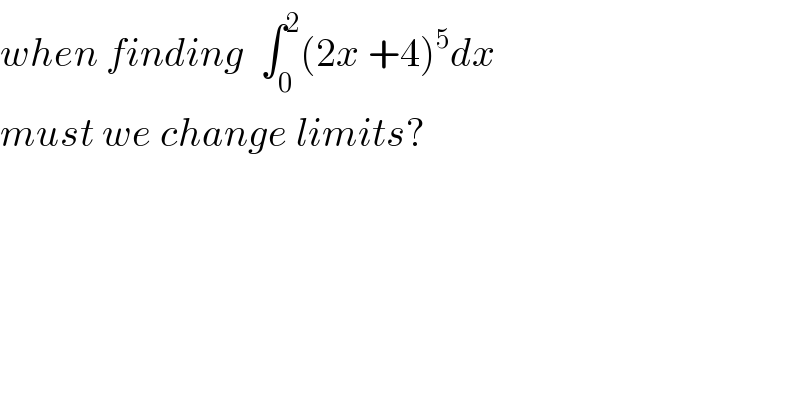
Question and Answers Forum
Question Number 66513 by Rio Michael last updated on 16/Aug/19

Commented by kaivan.ahmadi last updated on 17/Aug/19

Commented by Rio Michael last updated on 17/Aug/19

Commented by Cmr 237 last updated on 17/Aug/19
![no⊛ 0.5∫_4 ^8 t^5 dt=0.5×−_6 ^1 [t^6 ]_4 ^8 =−_(12) ^1 [8^6 −4^6 ] =21504 (( [(),() ]),() )](Q66571.png)
Commented by kaivan.ahmadi last updated on 17/Aug/19

Answered by mr W last updated on 18/Aug/19
![you mustn′t change limits, if you proceed like this: ∫_0 ^2 (2x +4)^5 dx =(1/2)∫_0 ^2 (2x +4)^5 d(2x+4) =(1/(2×6))[(2x+4)^6 ]_0 ^2 =(1/(12))[8^6 −4^6 ] =21504](Q66669.png)
Commented by Rio Michael last updated on 19/Aug/19

